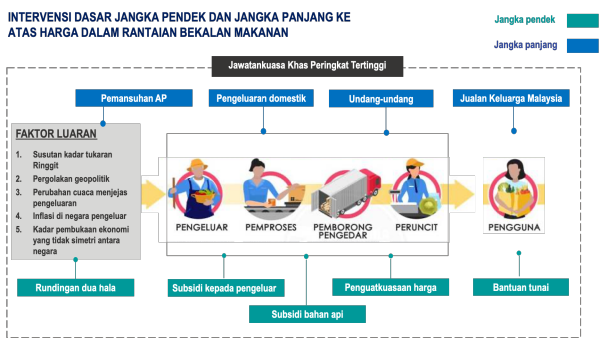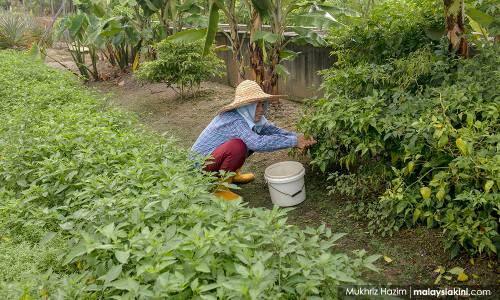PM: The Keluarga Malaysia Government Guarantees Food Security in Malaysia
The government under the leadership of YAB Prime Minister, Dato' Sri Ismail Sabri Yaakob has implemented various strategies to reduce the stress of living cost and ensuring food security became the main agenda to safeguard the welfare of the people, along with ensuring the country's resilience to face various global challenges.
The spike in food prices is a global issue and national food security
Malaysia is highly dependent on food imports and also raw material imports such as chicken supply from foreign countries. However, when these exporting countries experience production disruptions as a result of the impact of the Covid-19 pandemic, weather uncertainty, geopolitical conditions and inflation. This would eventually affect Malaysia indirectly.

Zuhairah, 26, said one of the steps to strengthen food security is by providing subsidies to producers and that both the government and the people are responsible for ensuring that food security is always efficient.
"Based on my grocery buying experience now, I feel the prices in the market are still reasonable. People need to take the initiative to plant resources to strengthen food security," said Hashvne, 33.

Short- term and long-term policy interventions on prices in the food supply chain.

Among the short-term strategies constructed by the government are:
Providing direct subsidies to producers in order to stabilize food prices in the market as well as balancing food production costs.
The biggest subsidy expenditure in history, which is the predicted subsidy of almost RM80 billion for the year 2022.
Providing fuel subsidies to control inflation of food and other goods in the economy.
Malaysia will also work together with Turkiye on research and development (R&D).
The long-term strategies:
Meanwhile, for the long term, the formulation of a more holistic food security policy that combines the sustainability of production and consumption as well as the food security network, has been developed for economic development.
Referring to the 12th Malaysia Plan (RMKe-12) document, the government has proposed the National Food Security Policy Action Plan for 2021 - 2025.
The action plan has been successfully implemented by the Ministry of Agriculture and Food Industry (MAFI) by focusing on 5 cores, 15 strategies and 96 initiatives in ensuring the country's preparation in the face of food security crises and contingency situations.
Elimination of the import permit (AP) system which will give more suppliers the opportunity to import food and raw materials.
A new governance innovation has been implemented by the government to ensure that food security issues are proactively examined based on various levels of administration.
The Malaysian government has negotiated with the United Arab Emirates (UAE) government to offer a reverse investment in the agricultural sector, along with helping the UAE in becoming a food hub in the Middle East.
The Qatari dairy producer Baladna Company has made an investment commitment of RM4.5 billion in the dairy farming sector which will become the largest dairy producer in the Southeast Asian region.
RM12.50 / month
- Unlimited access to award-winning journalism
- Comment and share your opinions on all our articles
- Gift interesting stories to your friends
- Tax deductable
